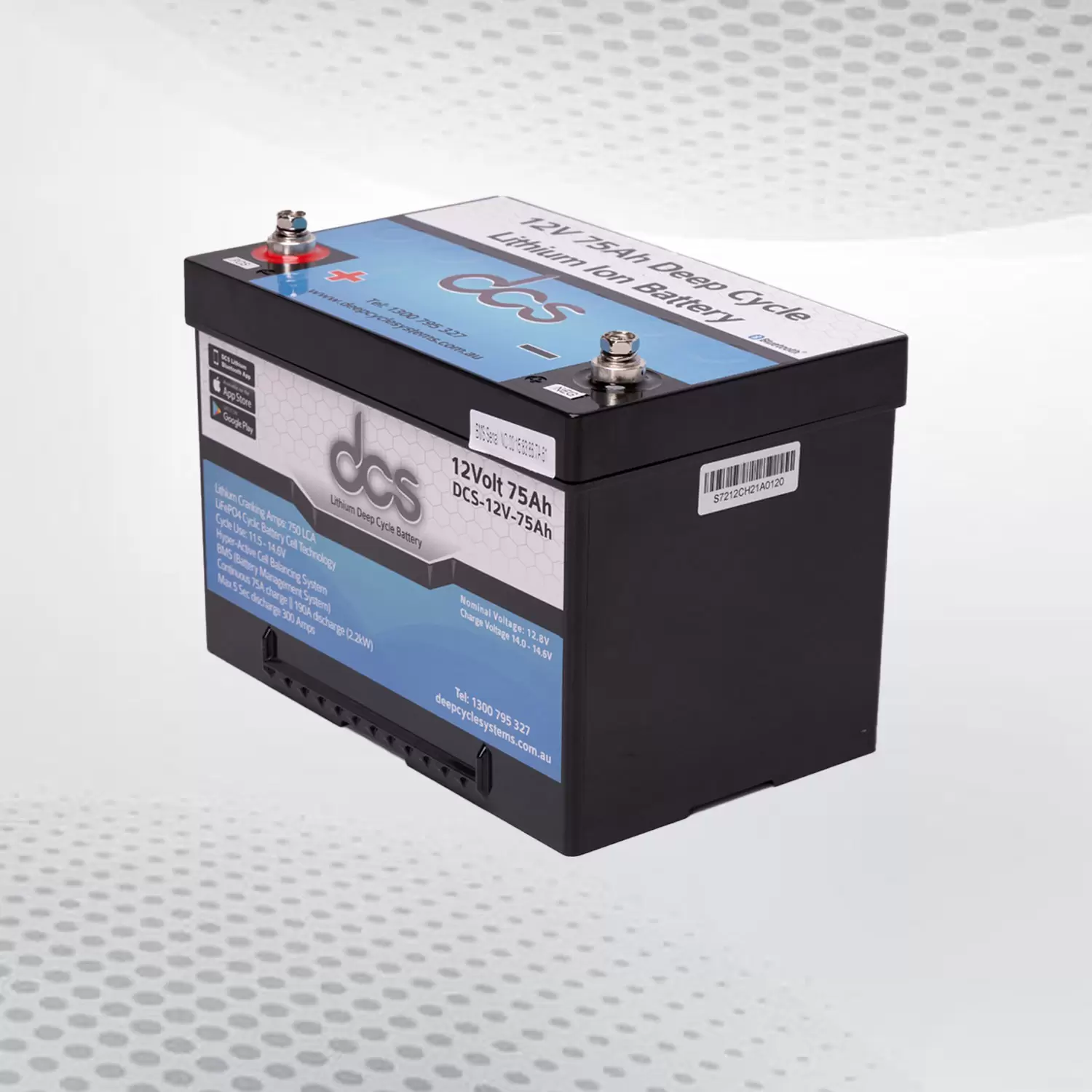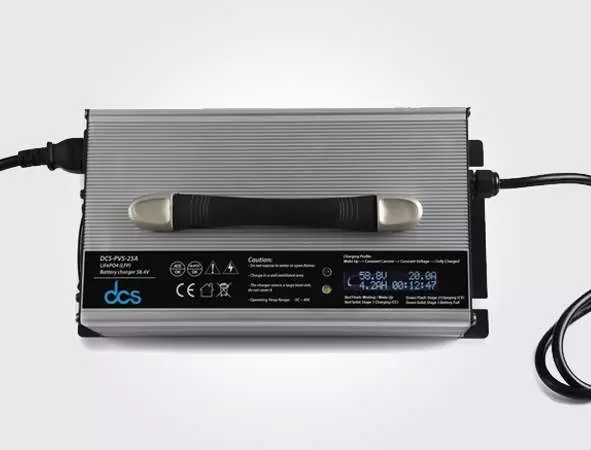In today’s fast-paced technological landscape, the reliance on portable power sources has become more critical than ever. Among various options, 12V Lithium batteries are a popular choice for consumers and manufacturers alike. They are versatile, efficient, and capable of powering multiple devices, making them essential in various applications, from automotive systems to home electronics. Their compact size and robust power output make them ideal for devices that demand reliability and longevity. Whether keeping your car’s engine running smoothly or providing backup power to critical home systems, 12V batteries deliver consistent performance and peace of mind.
Benefits of 12V Batteries over Other Voltage Options
12V batteries offer a unique balance of versatility, efficiency, and reliability that often surpasses other voltage options. Their standardized voltage makes them compatible with many devices, reducing the need for multiple battery types and simplifying power management. This universal applicability is particularly advantageous in scenarios where consistency and ease of use are paramount.
Compared to lower-voltage batteries, 12V options can deliver higher power output, making them suitable for more demanding applications without requiring complex configurations. Conversely, they offer a safer and more manageable power level compared to higher-voltage alternatives, which can pose greater risks and necessitate more stringent safety measures. Additionally, the widespread adoption of 12V batteries means they benefit from a well-established manufacturing, distribution, and recycling infrastructure.
This established ecosystem makes them readily available and supports ongoing advancements in technology and performance. In summary, 12V batteries strike an optimal balance that meets diverse needs, providing a robust and adaptable power source that often proves superior to other voltage options.
Cost Efficiency and Performance Advantages of Lithium Battery
A lithium battery offers significant cost efficiency due to its long lifespan and low maintenance needs. Unlike traditional batteries, these require fewer replacements over time, reducing overall costs. Their lightweight design also contributes to energy savings, as devices powered by these batteries can operate more efficiently. This combination of durability and efficiency makes them a smart investment for personal and commercial use.
These batteries also offer exceptional performance in various conditions, maintaining reliability across diverse environments. Their robust nature ensures consistent power delivery, crucial for everyday devices and specialized applications. Whether powering a portable gadget or a critical piece of medical equipment, the reliability of these batteries minimizes downtime and ensures seamless operation. It makes them an indispensable component in industries that demand efficiency and dependability.
Their superior energy density also allows for more compact and portable designs, enabling innovations in mobile technology and renewable energy solutions. As technology advances, the adaptability of 12V batteries ensures they remain at the forefront of powering cutting-edge devices. Their ability to integrate seamlessly with smart technology further enhances their appeal, allowing for greater connectivity and control. This synergy with modern systems optimises performance and supports the evolution of more sustainable and efficient energy solutions.
Environmental Impact and Sustainability Benefits
Reduced Toxicity and Recycling Potential
A major environmental advantage of 12V batteries is their reduced toxicity compared to traditional lead-acid batteries. They contain fewer harmful materials, which makes them less damaging to ecosystems. Furthermore, the recycling processes for these batteries are advancing, enabling the recovery of valuable materials and minimizing waste.
Lower Carbon Footprint
The extended lifespan of 12V batteries means fewer replacements and, consequently, a lower carbon footprint associated with manufacturing and disposal processes. This longevity translates into fewer batteries in landfills, reducing environmental contamination.
Support for Renewable Energy Systems
12V batteries are integral to renewable energy setups like solar power systems. They store energy generated from renewable sources, promoting clean energy and reducing reliance on fossil fuels. This support for renewable energy systems aligns with global efforts to combat climate change and promote sustainability. Incorporating 12V batteries into various applications can significantly contribute to environmental preservation while meeting the growing demands for efficient and reliable power sources.
Safety Features and Reliability Factors
Modern 12V batteries have advanced safety mechanisms to operate safely under various conditions. Features such as overcharge protection prevent the battery from exceeding its safe voltage limits, while thermal management systems help regulate temperature, preventing overheating. Short-circuit prevention adds another layer of safety, reducing the risk of electrical faults that could lead to fires or other hazards.
Reliability is equally important, especially when these batteries are used in critical applications. 12V batteries are designed to deliver robust performance even in extreme environmental conditions. They maintain consistent power delivery, whether exposed to high heat, frigid temperatures, or fluctuating weather, making them suitable for indoor and outdoor uses. This resilience ensures they can be depended upon in various settings, from home electronics to automotive systems.
Moreover, modern manufacturing techniques and rigorous testing standards contribute to the high reliability of 12V batteries. Quality control processes identify and eliminate potential flaws, ensuring each battery meets stringent performance criteria before reaching consumers. This commitment to quality and safety helps build trust in 12V batteries as a reliable power source for modern devices. Additionally, the integration of smart monitoring systems allows users to track the health and performance of their batteries in real-time, further enhancing reliability.
Versatility in Various Applications
12V batteries have become increasingly popular for powering a variety of home appliances. From lighting systems to garden tools, their adaptability allows seamless integration into setups that operate independently from the traditional power grid. This independence not only enhances energy efficiency but also provides reliability during power outages.
Automotive Industry
In the automotive industry, 12V batteries are indispensable. They are crucial for starting engines and powering numerous electronic components within vehicles. Modern cars with sophisticated electronic systems rely on these batteries to ensure consistent and dependable operation, making them essential for conventional and electric vehicles.
Recreational Vehicles and Boats
12V batteries offer a reliable power source for onboard electronics and systems in recreational vehicles (RVs) and boats. Whether for lighting, cooking appliances, or entertainment systems, these batteries provide the necessary energy to keep everything running smoothly while on the move or at sea.
Portable Gadgets and Tools
The convenience of 12V batteries extends to various portable gadgets and tools, including power drills, flashlights, and camping equipment. Their compact size and efficiency make them ideal for outdoor activities and DIY projects, ensuring users have a dependable power source wherever they go.
Renewable Energy Systems
In renewable energy systems, 12V batteries are critical in storing energy generated from solar panels and wind turbines. Their ability to efficiently store and discharge energy makes them key in promoting sustainable energy solutions.
Popular Applications of 12V Batteries
Home Security Systems
Home security systems rely on 12V batteries to ensure continuous operation, even during power outages. These batteries power alarms, surveillance cameras, and sensors, providing homeowners with reliable security around the clock.
Telecommunications Industry
In the telecommunications industry, 12V batteries are essential for backup power. They ensure that communication networks remain operational during power failures, maintaining connectivity for personal and professional communications. Critical medical equipment, such as portable ventilators and mobility devices, often use 12V batteries. These batteries provide the dependable power necessary for life-saving devices, ensuring they function effectively when needed.
Remote Monitoring Systems
12V batteries are commonly used in remote monitoring systems for environmental data collection, wildlife tracking, and weather stations. These batteries enable the continuous operation of sensors and data transmitters in isolated locations without access to the power grid.
Uninterruptible Power Supplies (UPS)
12V batteries are a crucial component of uninterruptible power supplies (UPS) that protect computers and other sensitive electronics from power interruptions. They provide temporary power for safe shutdowns and prevent data loss during outages.
Innovations Driving Battery Technology Forward
Innovations in battery technology are revolutionizing the capabilities of 12V batteries. One significant development is enhanced charging capabilities, which allow these batteries to recharge more quickly. This improvement minimizes downtime and increases user convenience, especially in fast-paced environments.
Smart battery management systems (BMS) are another groundbreaking advancement. These systems provide real-time data on battery health, charge levels, and overall performance. By enabling users to monitor their batteries closely, BMS optimizes battery usage and extends lifespan. This technology is particularly beneficial for applications where battery reliability and longevity are crucial.
Furthermore, new materials and manufacturing techniques are being explored to increase energy density and reduce weight. These advancements make 12V batteries more efficient and suitable for compact, high-performance devices. As battery technology continues to evolve, we can expect even more improvements in energy storage and power delivery capabilities, pushing the boundaries of what 12V batteries can achieve.
The Future of Lithium Batteries in Emerging Technologies
The landscape of emerging technologies is rapidly evolving, and lithium batteries are poised to play a transformative role. In the electrification of transportation, these batteries are expected to power a broad spectrum of vehicles, from electric cars to e-bikes and public transit systems. Their lightweight and high energy density makes them ideal for these applications, contributing to improved energy efficiency and reduced environmental impact.
Another area where 12V batteries will be crucial is the integration of smart technologies. As devices become increasingly interconnected and intelligent, the demand for reliable and efficient power sources grows. These batteries will support everything from smart home systems to advanced medical devices, ensuring consistent performance and reliability. Renewable energy systems also stand to benefit from advancements in 12V battery technology. Enhanced energy storage capabilities will allow for more efficient capture and use of energy from solar panels and wind turbines, promoting sustainability and reducing reliance on fossil fuels.
Innovations in battery management systems (BMS) are further driving the potential of 12V batteries. Real-time monitoring of battery health, charge levels, and overall performance will optimize usage and extend lifespan, making these batteries even more dependable in critical applications. Additionally, ongoing research into new materials and manufacturing techniques aims to increase the energy density and reduce the weight of 12V batteries.
Conclusion
The role of 12V Lithium batteries in our daily lives is undeniably significant. These batteries provide a balanced combination of performance, safety, and environmental benefits, making them indispensable across various applications. Their optimal voltage compatibility, ease of integration, and widespread availability ensure that they seamlessly meet the diverse needs of modern technology. As advancements in battery technology continue to unfold, particularly with lithium variants, the efficiency, reliability, and environmental impact of 12V batteries are only expected to improve.
FAQS
What Devices Commonly Use 12V Lithium Batteries?
12V batteries find applications in various devices, including automotive systems, recreational vehicles, solar energy systems, and different home appliances. They are also crucial in powering home security systems, portable gadgets, and tools.
Are 12V Batteries Safer Than Lead-Acid Batteries?
Yes, 12V batteries are generally considered safer than traditional lead-acid batteries. They incorporate advanced safety features like overcharge protection, thermal management, and short-circuit prevention. Additionally, they contain fewer toxic materials, making them less environmentally harmful.
How Long Do 12V Batteries Typically Last?
The lifespan of a 12V battery varies based on type, usage, and maintenance. Generally, 12V batteries last between 3 and 10 years, depending on how well they are cared for and the conditions under which they operate. Proper charging practices and avoiding deep discharges can help extend their lifespan.




